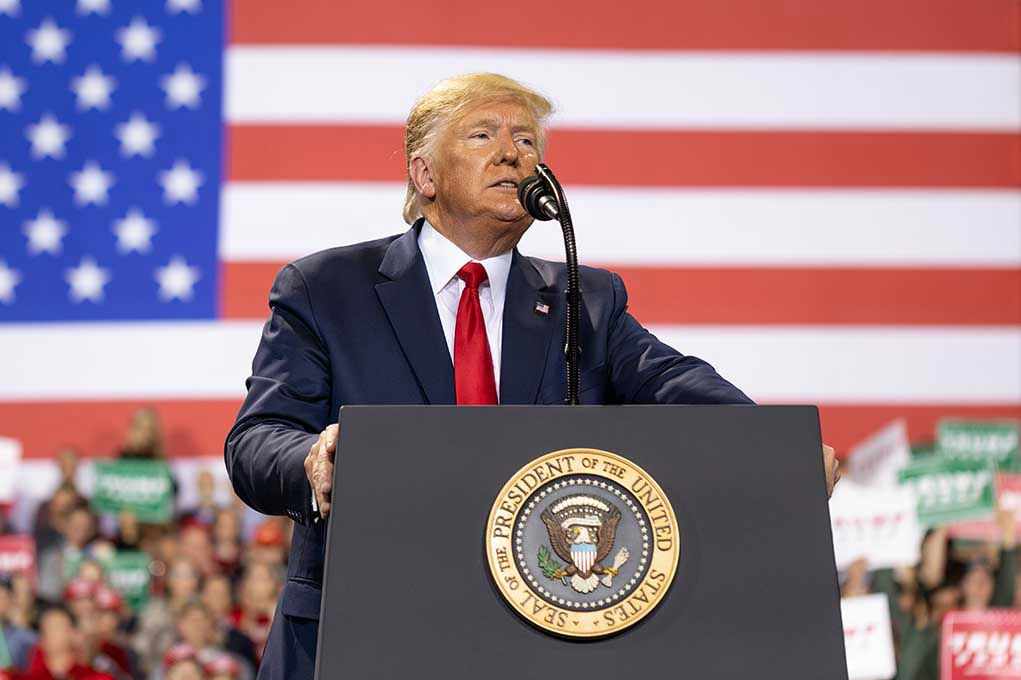
A new federal tax on money sent abroad by U.S. residents aims to curb remittances, ignite debate over immigration, and promises $10 billion in revenue—but critics warn it burdens working families and disrupts global ties.
Story Snapshot
- The One Big Beautiful Bill Act imposes a 1% excise tax on remittance transfers from the U.S. to foreign countries, effective after December 31, 2025.
- The tax targets all U.S. residents—regardless of citizenship—and is expected to generate $10 billion over ten years.
- Supporters see it as a common-sense measure to address deficits and discourage unchecked outflows; critics argue it hits low-income and immigrant families hardest.
- Industry experts warn the tax may drive remittances underground, risking fraud and weakening anti-money laundering protections.
Remittance Tax: Policy Aims and Conservative Motivations
The One Big Beautiful Bill Act, signed into law on July 4, 2025, introduces a 1% excise tax on remittance transfers sent from the U.S. to foreign countries. The policy takes effect for transfers made after December 31, 2025 and applies to all individuals, regardless of citizenship. Congressional leaders and President Trump framed the tax as a way to generate new revenue and deter funds from leaving the country. By targeting remittances—often associated with immigrant and illegal populations—lawmakers sought to address fiscal deficits and reinforce border and immigration priorities.
Supporters of the measure highlight that the tax aligns with long-standing conservative priorities. For decades, Americans have voiced frustration over hard-earned dollars being sent overseas, especially as government overspending, inflation, and globalist policies strain domestic resources. The remittance tax is expected to bring in $10 billion over a decade, offering a clear and direct funding stream without raising income taxes for American workers. By applying the tax universally, lawmakers argue they are not unfairly singling out any group but ensuring all who send money abroad contribute to the nation’s fiscal health.
Economic Impact and Burden on Families
While the tax is projected to deliver significant revenue, analysts warn of collateral effects on U.S. families and recipient countries. Remittances are a lifeline for millions abroad, with the U.S. serving as the world’s largest source. The new tax increases the cost of sending money home, especially hitting low-income workers and those making frequent, small transfers. Experts expect a reduction in the volume and frequency of remittances, potentially undermining household welfare, education, and health outcomes in countries reliant on U.S. dollars.
Remittance service providers—banks, money transfer companies, and fintech firms—face new compliance and reporting obligations. This could drive up administrative costs and reduce profit margins, with some providers warning of fewer options and higher fees for consumers. A likely consequence is a shift to informal or unregulated channels, as senders seek to avoid the tax. This trend raises risks of fraud, money laundering, and loss of oversight, undermining anti-crime efforts and financial transparency.
Social and Political Tensions: Reactions and Risks
The remittance tax provision has triggered sharp debate. Supporters applaud its focus on fiscal responsibility and immigration control, viewing it as a victory against policies that reward lawbreaking or encourage unchecked cross-border flows. Critics, including advocacy organizations and foreign governments, argue the tax unfairly targets immigrants and the poor, while offering only modest deficit reduction. They warn of diplomatic tensions with countries that rely on remittance inflows, as well as negative spillover effects on development and poverty reduction abroad.
Within the U.S., some see the tax as a step toward restoring limited government and constitutional values—addressing concerns about government overreach, border security, and the unchecked movement of money. However, others caution that the burden falls disproportionately on those least able to absorb higher costs, including many legal residents supporting families overseas. The debate underscores the complex balance between national sovereignty, economic self-interest, and America’s historic role as a land of opportunity.
Trump's 1 Percent Tax on Money Immigrants Send Home Is a Tax on the Global Poor
Agree that taxing immigrant remittances to their families wrong. It's cruel and can target the poorest among us. https://t.co/M5m25c6pJ7 pic.twitter.com/gmRruX7NSb
— judy morris (@judymorris3) September 8, 2025
As the effective date approaches, regulatory guidance is still being refined, and financial institutions are updating their systems to comply. The true impact—on federal revenue, immigrant families, and the remittance industry—will become clearer in the months following implementation. For now, the remittance tax stands as a test of America’s resolve to prioritize its own fiscal future while navigating global economic realities.
Sources:
The Compensation Connection (2025/08/04)
Wikipedia: One Big Beautiful Bill Act
House Ways and Means Committee Section-by-Section Summary
Congress.gov: H.R.1 – One Big Beautiful Bill Act












